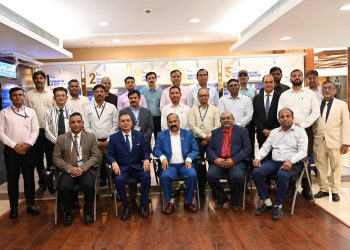The Republic of the Marshall Islands (RMI) Maritime Administrator issued a Marine Safety Advisory to inform about the importance of completing the critical items checklist prior to arrival in United States ports.
This Marine Safety Advisory (MSA) provides an update on deficiencies in the US, including examples that have led to detentions, and supersedes MSA No. 21-18.
Deficiency and Detention Trends
In 2022, the Republic of the Marshall Islands (RMI) fleet had several US Coast Guard (USCG) detentions that were easily preventable if proper attention was given to reporting requirements, maintenance, and effective implementation of the safety management system (SMS).
Key components to an effective SMS are:
- Timely notification of inoperable equipment or defects to the RMI Maritime Administrator (the “Administrator”); and
- Proper attention to maintaining critical equipment and ensuring familiarity of the crew with operation of the equipment.
Properly completing the critical items checklist and physically testing and/or examining the items on the list helps ensure inoperable equipment or defects are reported to the Administrator by the ship’s crew. Additionally, this notification allows the Administrator to provide any necessary guidance or direction related to the reported non-operational equipment or defects.
The Critical Items Checklist
The checklist’s purpose is to accurately reflect the status of the critical items that may lead to an unsafe condition or port State control (PSC) detention onboard an RMI ship. The requirement for filling out the Critical Items Checklist is contained in RMI Marine Notice 5-034-5, Measures to Improve Compliance in United States Ports, which states: Prior to arrival in a US port, the Master and Chief Engineer shall complete, sign, and submit the Critical Items Checklist (RMI Form MSD 340).
Detainable Deficiencies
Deficiencies that have led to detentions of RMI-flagged vessels during 2022 include:
- SMS inadequate or not fully implemented on board;
- Failure to report inoperable equipment to the Administrator and/or Classification Society;
- Fixed fire-fighting systems not ready for immediate use;
- Charging system for radio installation emergency source of power;
- Inoperable tank vessel high level and/or overfill alarms;
- Emergency means of escape inaccessible;
- Watertight doors not properly functioning;
- Machinery space audible and visual alarms inoperable;
- Smoke detection system not functioning properly;
- Emergency lights inoperable;
- Fuel and lube oil leaks;
- Oil soaked lagging;
- Defects of lifeboats;
- Failure to properly maintain Oil Record Book;
- Machinery space cleanliness;
- Cooling jacket water leaks; and
- Oily water separator condition and operation.
As explained, the Critical Items Checklist is essential to avoiding unsafe conditions onboard RMI-flagged vessels. It helps to prepare the vessel for its arrival into port, the goal of which is to assist in identification and elimination of any substandard conditions onboard that may be hazardous or lead to delays of the vessel.



























































